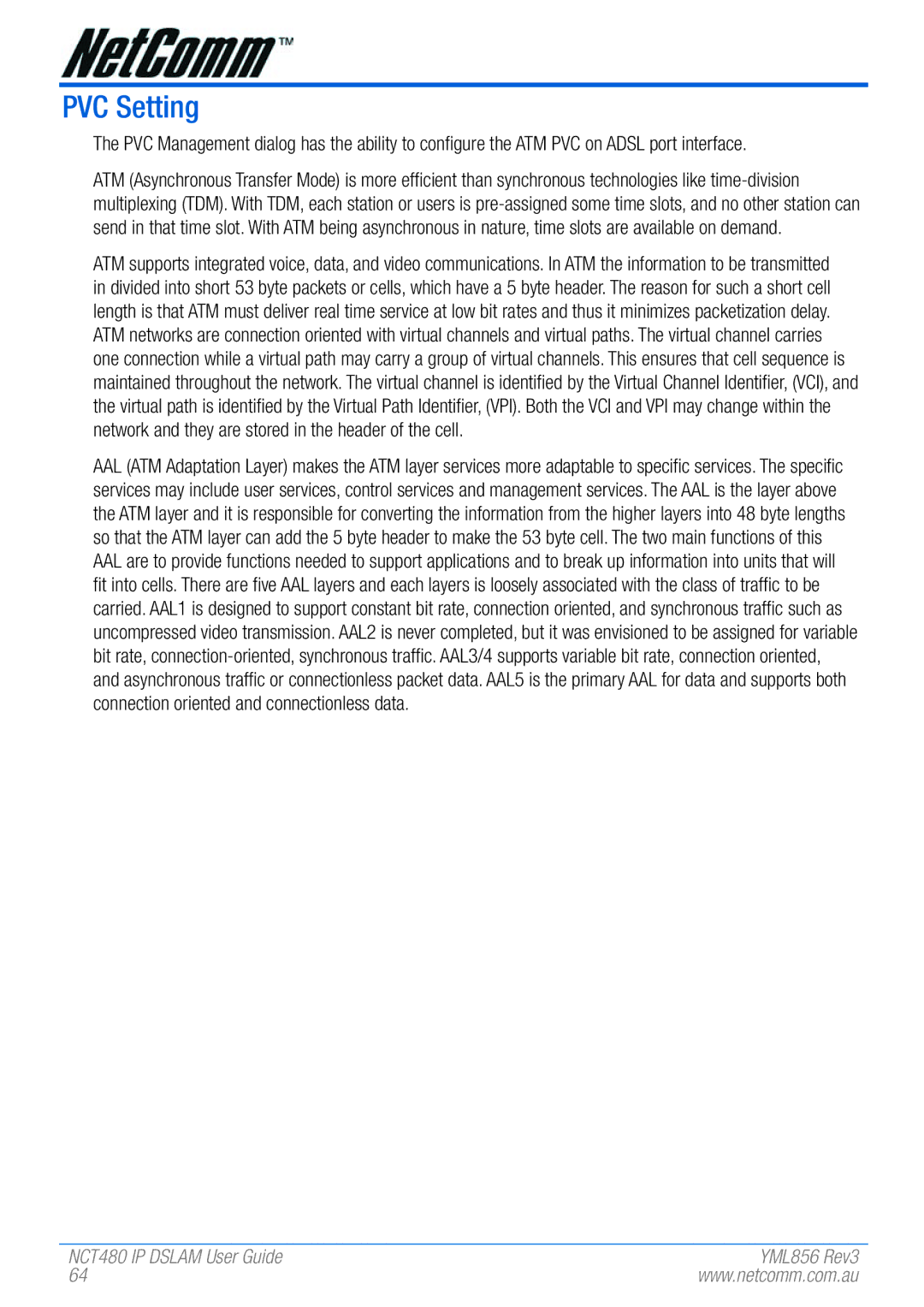PVC Setting
The PVC Management dialog has the ability to configure the ATM PVC on ADSL port interface.
ATM (Asynchronous Transfer Mode) is more efficient than synchronous technologies like
ATM supports integrated voice, data, and video communications. In ATM the information to be transmitted in divided into short 53 byte packets or cells, which have a 5 byte header. The reason for such a short cell length is that ATM must deliver real time service at low bit rates and thus it minimizes packetization delay. ATM networks are connection oriented with virtual channels and virtual paths. The virtual channel carries one connection while a virtual path may carry a group of virtual channels. This ensures that cell sequence is maintained throughout the network. The virtual channel is identified by the Virtual Channel Identifier, (VCI), and the virtual path is identified by the Virtual Path Identifier, (VPI). Both the VCI and VPI may change within the network and they are stored in the header of the cell.
AAL (ATM Adaptation Layer) makes the ATM layer services more adaptable to specific services. The specific services may include user services, control services and management services. The AAL is the layer above the ATM layer and it is responsible for converting the information from the higher layers into 48 byte lengths so that the ATM layer can add the 5 byte header to make the 53 byte cell. The two main functions of this AAL are to provide functions needed to support applications and to break up information into units that will fit into cells. There are five AAL layers and each layers is loosely associated with the class of traffic to be carried. AAL1 is designed to support constant bit rate, connection oriented, and synchronous traffic such as uncompressed video transmission. AAL2 is never completed, but it was envisioned to be assigned for variable bit rate,
NCT480 IP DSLAM User Guide | YML856 Rev3 |
64 | www.netcomm.com.au |
